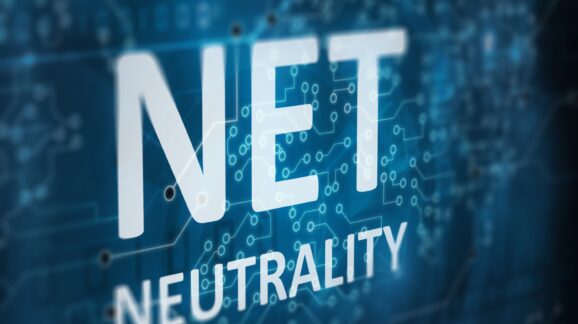Consumers can see a net benefit from FCC’s net neutrality rule stall

Photo Credit: Getty
The saga of broadband regulation is finally taking a positive turn.
On August 1st, the 6th Circuit Court of Appeals granted a stay of the FCC’s net neutrality rule pending final review of the broadband providers’ appeal. The Court stated that “broadband providers have shown that they are likely to succeed on the merits” because “the final rule implicates a major question, and the Commission has failed to satisfy the high bar for imposing such regulations.”
It is no surprise that the FCC’s expansive net neutrality rule is in jeopardy. As detailed in my paper, Major Questions on Net Neutrality, a primer on the FCC’s brewing broadband legal fight, the major questions doctrine holds that for questions of vast economic and political significance, a regulatory agency must have clear congressional authorization for the power it is asserting. The 6th Circuit found that the net neutrality rule involves a question of vast economic and political significance due to the importance of broadband service and the debates that Congress and the states have had regarding net neutrality. The Court also stated that “The Communications Act likely does not plainly authorize the Commission to resolve this signal question.”
The FCC should read the writing on the wall and take this as an opportunity to exercise regulatory humility and carefully limit itself to the power Congress authorized. Regulatory restraint should be the watchwords. And if the FCC continues to push the limits of its authority, the FCC’s (or any federal agency’s) interpretation of an ambiguous statute will no longer receive deference. In Loper Bright Enterprises v. Raimondo, the Supreme Court recently overturned Chevron deference, the requirement that a court defer to a regulatory agency’s interpretation of an ambiguous statute. Courts will now interpret ambiguous statutes, providing the type of check that is a foundation of our system of government.
Congress has an opportunity as well. The press secretary for Chicago Mayor Richard J. Daley once admonished reporters to “Write what he means, not what he says.” Congress, the people’s representatives, should say what it means, speaking with clarity and clearly stating the powers it is granting regulatory agencies.
The need for clarity also means that Congress should update out of date statutes such as the Communications Act of 1934. There is a need for a new communications act that embraces sensible free market, pro-competition principles that support the growth and development of the communications marketplace. A new act should clearly limit the FCC’s regulatory authority, make clear that contradictory and expansive state statutes are preempted and that the priorities are innovation, investment and competition rather than regulation and government mandate.
The winners in an era of regulatory restraint and clarity will be consumers. Technologists and entrepreneurs will have increased freedom to invest, create, and innovate without the uncertainty that comes from an expansive and ambiguous regulatory environment.
Just as consumers benefited from the years of light touch regulation that allowed broadband providers to build resilient, high capacity, well capitalized networks, consumers will benefit from the innovation and investment that occurs with regulatory restraint and clarity.
Policymakers should take advantage of this opportunity. The consumer benefits will speak for themselves.
Brian A. Rankin
Adjunct Fellow